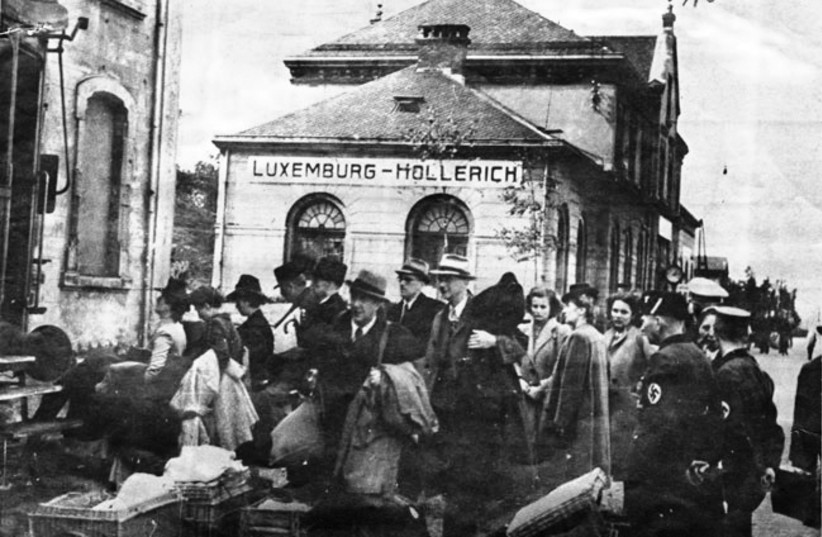The World Jewish Restitution Organization (WJRO) announced on Monday that its Claims Conference has started distributing EUR 1,000,000 from the Luxembourg Fund for Holocaust survivors who currently live in Luxembourg or lived there during the Nazi occupation.
Each recipient will be granted an initial EUR 5,000 payment by the end of November and the second payment in March 2022. Those eligible will be selected from people who apply for the restitution before the extended deadline of January 31, 2022.
The reparations come after Luxembourg's government signed an agreement with members of its Jewish community, as well as the WJRO and the Luxembourg Foundation for the Remembrance of the Shoah on International Holocaust Remembrance Day, January 27, 2021.
In addition to securing restitution for Luxembourgish Holocaust survivors, the agreement allocates resources for Holocaust education, memorialization and research.
“We are pleased that survivors will soon be receiving their first payments, Gideon Taylor, Chair of Operations of the WJRO, said. "We also urge anyone that may be eligible for the program to apply by January 31, 2022, the extended deadline. All survivors will receive equal payments regardless of their application submission date. These funds provide a small measure of justice and will help survivors live their lives with the dignity they deserve.”

Laurent Moyse, Acting President of the Luxembourg Foundation for the Remembrance of the Shoah, added that the payments are especially important as Holocaust survivors age and they demonstrate Luxembourg's commitment their welfare.
The announcement of the payments was met with gratitude from Holocaust survivors.
"I was born in Luxembourg. When the war began, we left for southern France in which the Nazis captured my parents," 82-year-old Haya Nevo said. "I was taken to live by a Christian family while my brother was brought to a hidden camp for children in the mountains. My parents were exiled to Auschwitz never to return. We moved to Israel in 1949 with our grandmother. We built our lives in Israel. Although we are not starving for bread, we are pleased and grateful for Luxembourg's government decision. As the saying goes 'better late than never.'"
